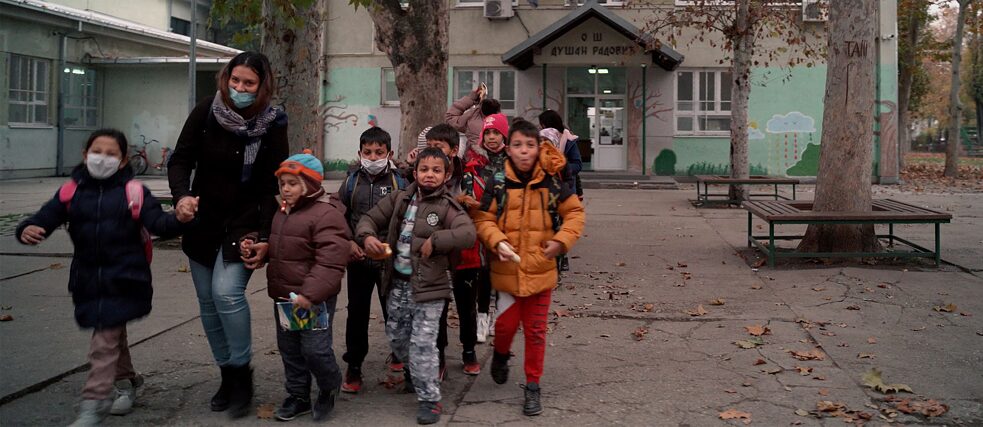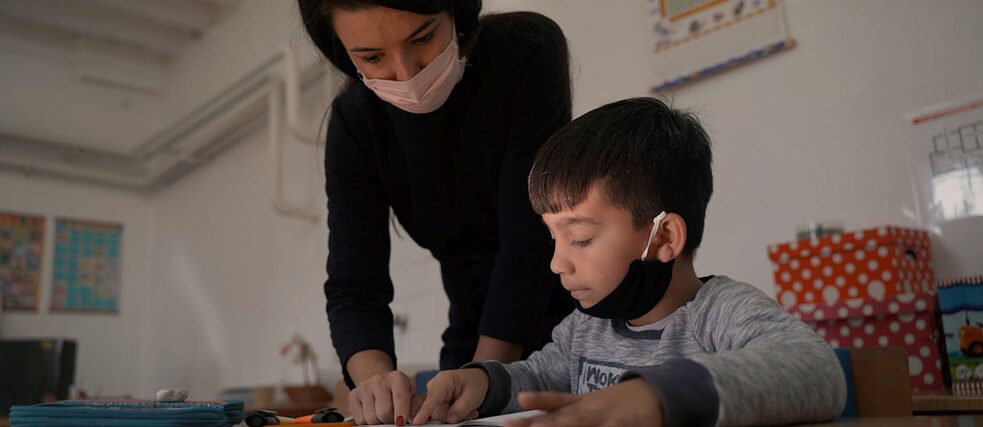International Relief Fund 2020
Education for all

Forum Roma Serbia has been working for years against the precarious living situation of Roma in Serbia and aims above all at expanding access to education for Roma children in order to create perspectives and strengthen the social participation of the minority. The children often fall out of the Serbian school system simply because of their language. The closure of schools and online classes during the pandemic have exacerbated the situation. With funding from the International Relief Fund 2020 of the Goethe-Institut, the German Foreign Office and other foundations and cultural intermediary organisations, Forum Roma was able to maintain teaching for various Roma settlements in Bor, Novi Sad and Požarevac.
By Saša Kamenović
The project under the title "Education for All" has been implemented in Bor, Novi Sad and Požarevac since September and runs until the end of the year, for the duration of the International Relief Fund 2020. The aim is to support socially disadvantaged children in coping with the school programme. This was prompted by problems schools had to deal with during the current pandemic. At least 40 children in each of the three cities are to be supported through the project activities. Active support is planned for all school children, with a focus on children of primary school age.
 Practising the Serbian alphabet at the Vuk Karadžić Primary School in Bor | Photo (detail Video Still): © Andrija Kovač
Practising the Serbian alphabet at the Vuk Karadžić Primary School in Bor | Photo (detail Video Still): © Andrija Kovač
The support measures for Roma pupils were designed and implemented by pedagogical assistants and primary school teachers. The pupils have attended these lessons regularly and have shown interest in attending additional lessons. Many pupils felt that this would help them to catch up on the lessons they had missed.
German subtitles can be displayed.
Catching up on neglect
At the beginning of the project “Education for All”, in cooperation with pedagogical assistants from the Vuk Karadžić Primary School in Bor, a list of 42 children from grades 1 to 5 in need of additional learning support, especially in Serbian and mathematics, was drawn up. Regular communication took place with the Forum Roma members on topics as classroom dynamics, classroom support, ensuring unhindered activity in line with COVID-19 prevention measures, and procurement of teaching materials and school supplies.The supporting measures for Roma pupils were designed and implemented by pedagogical assistants and primary school teachers. The pupils have attended these lessons regularly and have shown interest in attending additional lessons. Many pupils felt that this would help them to catch up on the lessons they had missed.
The teaching activities follow the curriculum of the Serbian Ministry of Education throughout and thus also the pace at which the respective teaching units are gone through in regular classes.
Author
Saša Kamenović is a teacher at the Vuk Karadžić Primary School in Bor.